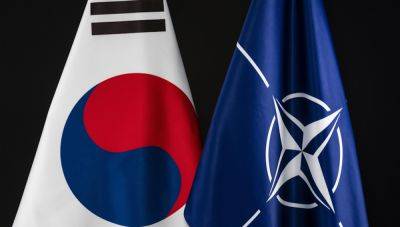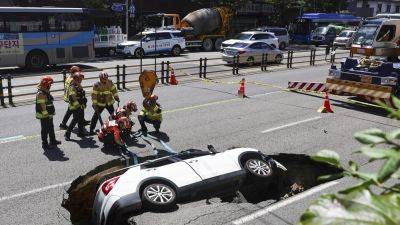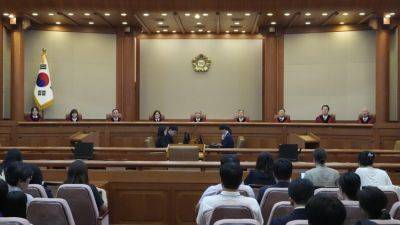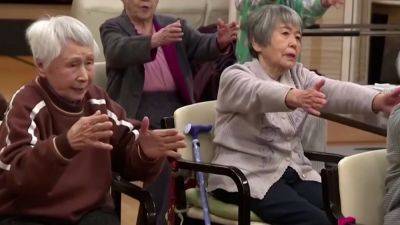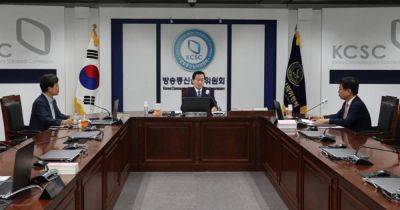Trainee doctor exodus pushes South Korea’s collapsing healthcare system to the brink
The consequences have been catastrophic. Across the nation, patients are being turned away from overstretched, understaffed A&Es, with some large hospitals suspending treatment for cardiac arrests and traumatic injuries. It’s a crisis compounded by a resurgence in Covid-19 cases, pushing the system to the brink.
“My current situation here shows how the emergency care system is collapsing,” said Namgung In, an emergency medicine doctor in Seoul. He described having to turn away a traffic-accident victim with serious injuries who had already been refused treatment by multiple hospitals.
“I am sorry, sir. We will never come back,” one disillusioned trainee doctor wrote on Sunday to Hwang Gyu-suk, the head of the Seoul Medical Association, in a letter seen by This Week in Asia.
Since quitting, the doctor said he had taken on odd jobs as a chauffeur and orchard worker to make ends meet.
03:04
South Korean patients suffer as healthcare system in turmoil amid doctor protest
The fallout of the mass exodus is reverberating across South Korea, with hospitals slashing services and cancelling procedures as they struggle to keep the lights on. Authorities insist the restrictions are “temporary” and promise increased fees to discourage non-urgent visits. But for patients in need of critical care, the consequences could be dire – a sobering glimpse of a healthcare system in free fall.
The government’s move to expand medical school quotas temporarily boosted Yoon’s approval ratings earlier this year, as the conservative president sought to project an image of determination and commitment to reform.
But the ill-advised gambit has now come back to haunt him, with the mass exodus of trainee doctors dealing a significant blow to the ruling party in


